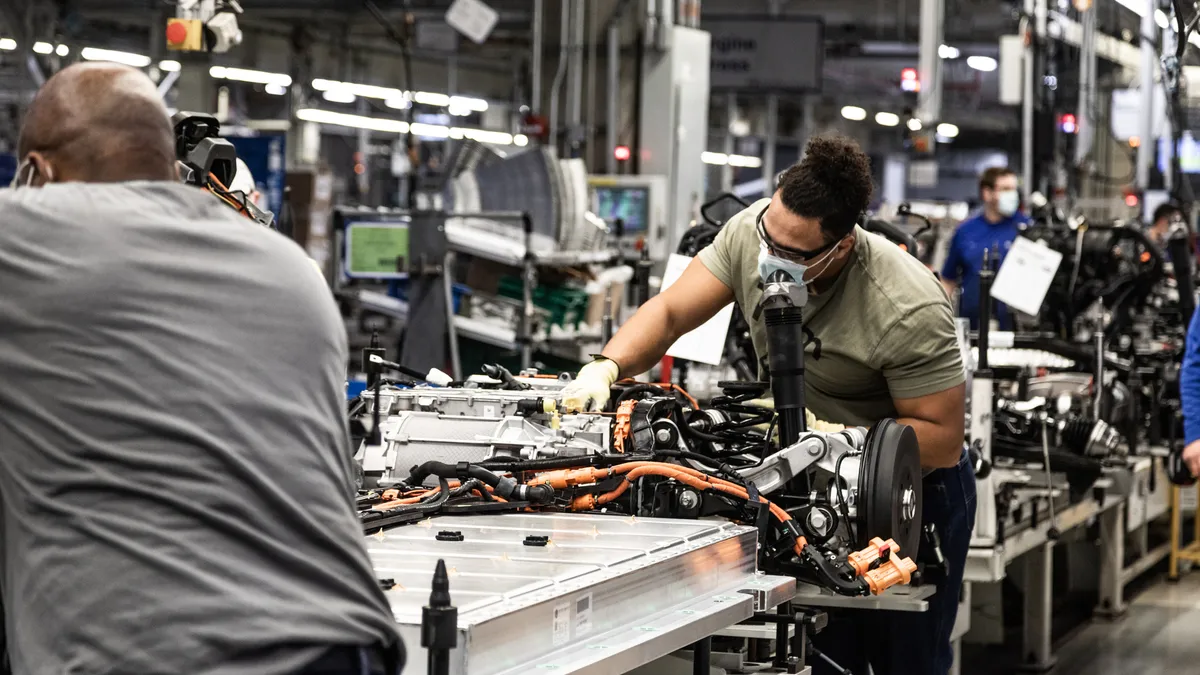Dive Brief:
- Researchers at Tennessee Tech University will receive a $4.8 million grant from the U.S. Department of Energy to help improve electric vehicle battery recycling.
- The project will develop what the university says is a first-of-its-kind “mobile preprocessing hub” that can be taken to local EV collection sites, “allowing electric vehicle owners to have batteries safely disassembled and shredded on-site,” according to a news release.
- The grant is part of a $45 million federal funding round for projects meant to improve the economics of EV battery recycling, according to the DOE.
Dive Insight:
The DOE’s recent round of grants, funded by the Infrastructure Investment and Jobs Act of 2021, is part of the Biden-Harris Administration’s overarching goal for EVs to make up half of new light-duty vehicle sales by 2030. It’s unclear how that could change when President-elect Donald Trump takes office in January, especially as his nominee to lead the Department of Energy, Chris Wright, has been critical of electric vehicles in the past.
EV recycling efforts are already taking place at the state and local levels, and major waste companies are still adding electric collection vehicles to fleets.
Pingen Chen, associate professor of mechanical engineering at Tennessee Tech, said in a statement that he has been focused on local EV research for several years and sees potential for more work in the state, in part due to “very affordable electricity rates.” He also sees EVs as a way to help low-income communities reduce transportation costs.
“We hear concerns in rural communities when people are considering an electric vehicle – what do we do with the battery when the vehicle is retired?” Chen said in a statement. “Our goal is to figure out the most efficient, cost-effective and safest way to recycle these batteries at the end of their life cycle.”
Chen has received previous federal grants related to electrifying fleets and adding more electric vehicle charging stations in rural communities, the university said in a news release.
The DOE first announced the funding round on October 31, and the university offered new details on the project last week. The university sees the mobile EV battery recycling project as a “user friendly” option for making EV recycling more accessible. Once the batteries go through the mobile preprocessing hub, the batteries’ raw materials will go on to be “extracted, studied and reused in battery manufacturing,” the university said.
Other awardees in the funding round include the Rochester Institute of Technology, which will receive about $7 million to develop a process to better assess the condition of end-of-life EV batteries, then use machine learning to partially automate the dismantling process. The University of Akron received $2 million for work on diverting plastics from end-of-life EV battery packs from disposal and identifying recycling options.
Companies also received grant funding. Caterpillar’s $5 million grant is meant to design improved battery packs that are easier to dismantle. General Motors received $8 million to build an “automatic sorting and de-hazarding system” for end-of-life EVs that recyclers, mechanic shops and dealers could also use at their own facilities.















